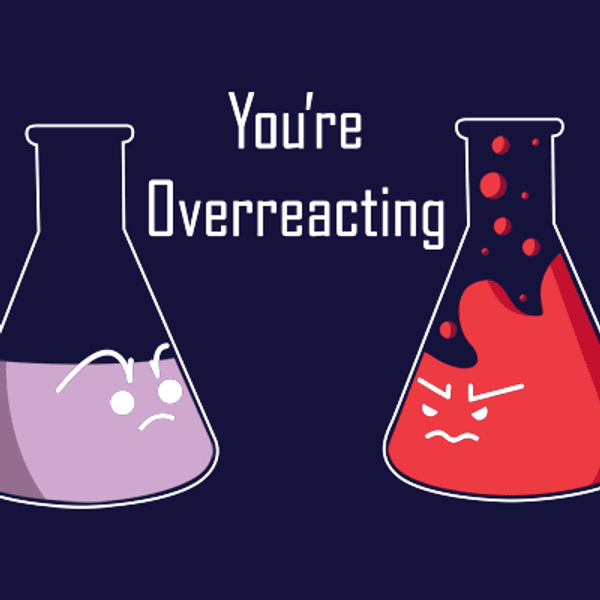I'm an emotional person. I cry when I see a really cute dog, my whole body erupts in wiggles when I'm happy. Sometimes, I get too angry to talk, or too sad to open my eyes. Thankfully, I'm introspective by nature, and I know how to read my own emotions. I know how to give myself what I need.
My emotions only became a problem when I entered the sphere of social justice. Here, I thought, here is a place where I can take my fear and anger and channel it into something good. No longer would I have to sit with these feelings festering hopelessly inside of me. I had assumed that my caring so much would be an asset, not a disadvantage.
I was in middle school the first time a boy told me I was too emotional to engage in a debate about feminism. Or illegal immigration. Or homophobia. Or any subject we were debating in our eighth-grade civics class. This kid worshiped numbers and logic, and believed that any argument that prioritized the human condition over those was obviously flawed. My baby hippy-liberal self was not having any of that nonsense, but it took every ounce of willpower I had to not cry out of frustration whenever I talked to him. But this kid had to be an anomaly, right? He was just a jerk who felt he had to resort to being mean to little girls to feel powerful.
He was not an anomaly. Throughout my life I have met more people than I can count who think that emotions have no place in debate. You only need to look through the comments on any Facebook post or YouTube video to find them. The more my arguments were met with "Are you on your period?" and "Don't be such a crybaby!", the more I felt that maybe they were right. Maybe I should just shut up and leave the arguing to people who can get a grip on themselves.
The thing I hadn't realized is that none of the people telling me this had as much at stake in the argument as I had. When I am arguing with a man about feminism, I am trying to get him to see me as an equal. He is trying to be right. A straight person may not understand why a homophobic politician getting elected into office terrifies me, but that is because they are not affected by this in the same way that I, a lesbian, am. It wasn't that they were objective, it was that they simply didn't care.
Not caring about an issue itself is a form of privilege. So what if immigrants face racism and xenophobia in the US, I'm not an immigrant. I looked into this phenomenon, and found a quote from an article on everydayfeminism.com that made everything click into place for me.
"At the end of the day, tone-policing is a tool used against marginalized people who are upset about their oppression – and should be."
And it had worked on me. I stopped talking about issues that affected me because I thought my emotions made me wrong. But if there is one thing I hate more than being wrong, it is for oppression to win. I made a vow to myself to not let a fear of being seen as a hot mess keep me from perusing justice and equality.
I won't be silent, and neither should you. Be proud, be emotional, and don't stop fighting.








 The minimum wage is not a living wage.
StableDiffusion
The minimum wage is not a living wage.
StableDiffusion
 influential nations
StableDiffusion
influential nations
StableDiffusion












